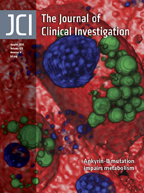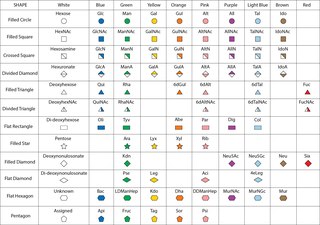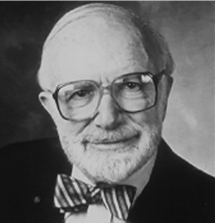Related Research Articles

Edward Donnall "Don" Thomas was an American physician, professor emeritus at the University of Washington, and director emeritus of the clinical research division at the Fred Hutchinson Cancer Research Center. In 1990 he shared the Nobel Prize in Physiology or Medicine with Joseph E. Murray for the development of cell and organ transplantation. Thomas and his wife and research partner Dottie Thomas developed bone marrow transplantation as a treatment for leukemia.

The Journal of Clinical Investigation (JCI) is a twice-monthly peer-reviewed medical journal covering biomedical research. It was established in 1924 and is published by the American Society for Clinical Investigation, one of the oldest and most respected medical honor societies in the United States. Articles focus on the mechanisms of disease, with an emphasis on basic research, early-stage clinical studies in humans, and new research tools and techniques. The journal also publishes reviews in edited series or as stand-alone articles, commentaries on research, editorials, and feature items. The editor-in-chief is Elizabeth M. McNally.
Richard D. Cummings is an American biochemist who is the S. Daniel Abraham Professor of Surgery at Beth Israel Deaconess Medical Center and Harvard Medical School in Boston, Massachusetts. He also the chief of the division of surgical sciences within the department of surgery. He is the director of the Harvard Medical School Center for Glycoscience, director of the National Center for Functional Glycomics, and also founder of the Glycomics Core at BIDMC. As of 2018 Cummings is also the scientific director of the Feihi Nutrition Laboratory at BIDMC. Before moving to BIDMC/HMS, Cummings was the William Patterson Timmie Professor and chair of the department of biochemistry at Emory University School of Medicine in Atlanta, Georgia from 2006 to 2015. At Emory, Cummings was a founder in 2007 of the Emory Glycomics Center.
Ajit Varki is a physician-scientist who is distinguished professor of medicine and cellular and molecular medicine, founding co-director of the Glycobiology Research and Training Center at the University of California, San Diego (UCSD), and founding co-director of the UCSD/Salk Center for Academic Research and Training in Anthropogeny (CARTA). He is also executive editor of the textbook Essentials of Glycobiology and distinguished visiting professor at the Indian Institute of Technology in Madras and the National Center for Biological Sciences in Bangalore. He is a specialist advisor to the Human Gene Nomenclature Committee.
Anne Dell is an Australian biochemist specialising in the study of glycomics and the carbohydrate structures that modify proteins. Anne's work could be used to figure out how pathogens such as HIV are able to evade termination by the immune system which could be applied toward understanding how this occurs in fetuses. Her research has also led to the development of higher sensitivity mass spectroscopy techniques which have allowed for the better studying of the structure of carbohydrates. Anne also established GlycoTRIC at Imperial College London, a research center that allows for glycobiology to be better understood in biomedical applications. She is currently Professor of Carbohydrate Biochemistry and Head of the Department of Life Sciences at Imperial College London. Dell's other contributions to the study of Glycobiology are the additions she has made to the textbook "Essentials of Glycobiology" Dell was appointed Commander of the Order of the British Empire (CBE) in the 2009 Birthday Honours.
David Gordon Nathan is a pediatrician and hematologist. He is known for his authorship of Nathan and Oski's Hematology of Infancy and Childhood, a standard reference in pediatrics, currently in its seventh edition. Nathan remains an author on the current edition. Now retired, he was Robert A. Stranahan professor of pediatrics at Harvard Medical School and served as president of the Dana–Farber Cancer Institute. He was born in Boston.

Timothy J. Ley is an American hematologist and cancer biologist. He is the Lewis T. and Rosalind B. Apple Professor of Oncology in the department of medicine, and is chief of the section of stem cell biology in the division of oncology at Washington University in St. Louis. He is a member of the Alvin J. Siteman Cancer Center.
Jeffrey David Esko, Ph.D.,M.D. (h.c) is currently a Distinguished Professor of Cellular and Molecular Medicine and Co-Director of the Glycobiology Research and Training Center at the University of California, San Diego. His research has focuses on understanding the structure, biosynthesis and biological roles of proteoglycans in mammalian cells and model organisms. Esko popularized proteoglycans through his pioneering genetic and functional studies in cells and model organisms. He discovered the dependence of tumor formation on heparan sulfate, the first small molecule inhibitors of heparan sulfate, the action of proteoglycans as receptors for hepatic lipoprotein clearance and for delivery of therapeutic agents. Esko cofounded Zacharon Pharmaceuticals. He was an editor and author of the first textbook in the Glycobiology field, Essentials of Glycobiology.
Stuart Holland Orkin is an American physician, stem cell biologist and researcher in pediatric hematology-oncology. He is the David G. Nathan Distinguished Professor of Pediatrics at Harvard Medical School. Orkin's research has focused on the genetic basis of blood disorders. He is a member of the National Academy of Sciences and the Institute of Medicine, and an Investigator of the Howard Hughes Medical Institute.

Oscar Davis Ratnoff was an American physician who conducted research on the process of coagulation and blood-related disorders. Ratnoff discovered the substance later known as Factor XII and was one of the primary contributors to the delineation of the exact sequence that makes up the clotting cascade. He also made notable research contributions to the understanding of the complement system and to the detection and treatment of hemophilia.
Philip Warren Majerus was an American biochemist who confirmed the cardiovascular benefits of aspirin. After graduating from medical school and completing a residency at Massachusetts General Hospital, Majerus conducted research at the National Heart Institute before becoming a faculty member at the Washington University School of Medicine.

Harry Schachter FRSC was a Canadian biochemist and glycobiologist. He was professor at the University of Toronto and at the Hospital For Sick Children in Toronto.

Virginia Minnich (1910–1996) was an American molecular biologist and hematology researcher known for discovering hemoglobin E, an abnormal form of hemoglobin that can cause blood disorders, and for working out the glutathione synthesis pathway. She was a noted blood morphologist and teacher and helped set up hematology laboratories around the world. She was the first person without a PhD or MD to be appointed a Professor of Medicine at Washington University School of Medicine.

Jasper Evan Sadler III was an American hematologist.

The Symbol Nomenclature For Glycans (SNFG) is a community-curated standard for the depiction of simple monosaccharides and complex carbohydrates (glycans) using various colored-coded, geometric shapes, along with defined text additions. It is hosted by the National Center for Biotechnology Information at the NCBI-Glycans Page. It is curated by an international groups of researchers in the field that are collectively called the SNFG Discussion Group. The overall goal of the SNFG is to:
- Facilitate communications and presentations of monosaccharides and glycans for researchers in the Glycosciences, and for scientists and students less familiar with the field.
- Ensure uniform usage of the nomenclature in the literature, thus helping to ensure scientific accuracy in journal and online publications.
- Continue to develop the SNFG and its applications to aid wider use by the scientific community.
Rosalind Hauk Kornfeld (1935–2007) was a scientist at Washington University in St. Louis known for her research determining the structure and formation of oligosaccharides. The Society of Glycobiology annually awards a lifetime achievement award in her honor.

Tibor Jack Greenwalt was an American hematologist who specialized in transfusion medicine. Greenwalt earned his medical degree from New York University Medical School in 1937 and completed a hematology fellowship under William Dameshek. After serving as a US Army physician in World War I, he settled in Milwaukee, Wisconsin, where he became a professor of medicine at the Marquette University School of Medicine. He was a founding member of the American Association of Blood Banks and served as president of the International Society of Blood Transfusion from 1966 to 1972.
The George M. Kober Medal and Lectureship are two different awards by the Association of American Physicians (AAP) in honor of one of its early presidents, George M. Kober. The George M. Kober Lectureship, is an honor given to an AAP member "for outstanding research contributions which have extraordinary impact on patients"; beginning in 1925, the Lectureship has been awarded every three years. The George M. Kober Medal, started in 1927, has, beginning in 1929, been awarded annually to an AAP member "whose lifetime efforts have had an enormous impact ..."
Nicki Packer FRSC is an Australian college professor and researcher. She currently serves as a distinguished professor of glycoproteomics in the School of Natural Sciences at Macquarie University and principal research leader at Griffith University's Institute for Glycomics. Packer is a Fellow of the Royal Society of Chemistry and in 2021 received the Distinguished Achievement in Proteomic Sciences Award from the Human Proteome Organization. Her research focuses on biological functional of glycoconjugates by linking glycomics with proteomics and bioinformatics.
References
- ↑ Kornfeld, S; Neill, US (2015). "A conversation with Stuart Kornfeld". J Clin Invest. 125 (8): 2908–9. doi:10.1172/JCI82628. PMC 4563762 . PMID 26237040.
- ↑ Ladue Horton Watkins High School website, "Distinguished Alumni" Archived October 11, 2018, at the Wayback Machine . Accessed February 8, 2018.
- 1 2 3 Hunt, Geoff (April 2012). "Tabor/JBC Lectureship Award: Kornfeld's work applauded for its 'rigor and scientific breadth'". ASBMB Today. American Society for Biochemistry and Molecular Biology. Retrieved June 5, 2018.
- 1 2 3 "Stuart Kornfeld". Faculty. Washington University School of Medicine in St. Louis. July 11, 2017. Retrieved December 12, 2017.
- ↑ Varki, Ajit (July 1, 2010). "2010 Association of American Physicians George M. Kober MedalIntroduction of Stuart Kornfeld". The Journal of Clinical Investigation. 120 (7): 2635–2638. doi:10.1172/JCI43804. ISSN 0021-9738. PMC 2898621 . PMID 20592476.
- ↑ Sadler, J. Evan (August 12, 2016). "Phillip W. Majerus, MD (1936-2016)". Profiles. The Hematologist. 13 (5). Washington, D.C.: American Society of Hematology. doi:10.1182/hem.V13.5.6437.
- ↑ Varki, Ajit (July 2010). "Introduction to Stuart Kornfeld" (PDF). The Journal of Clinical Investigation. 120 (7): 2635–8. doi:10.1172/jci43804. PMC 2898621 . PMID 20592476.
- ↑ "Stuart Kornfeld". www.nasonline.org.
- ↑ Chydenius, Johan, ed. (1988). Årsbok –Vuosikirja A LXV 1988. Helsinki: Societas Scientiarum Fennica. p. 27.
- ↑ "Stuart Kornfeld". oncology.wustl.edu.
- ↑ "E.B. Wilson Medal". The American Society for Cell Biology. Retrieved June 5, 2018.